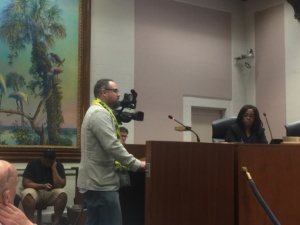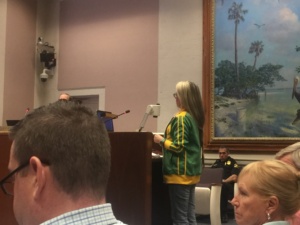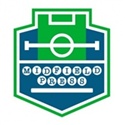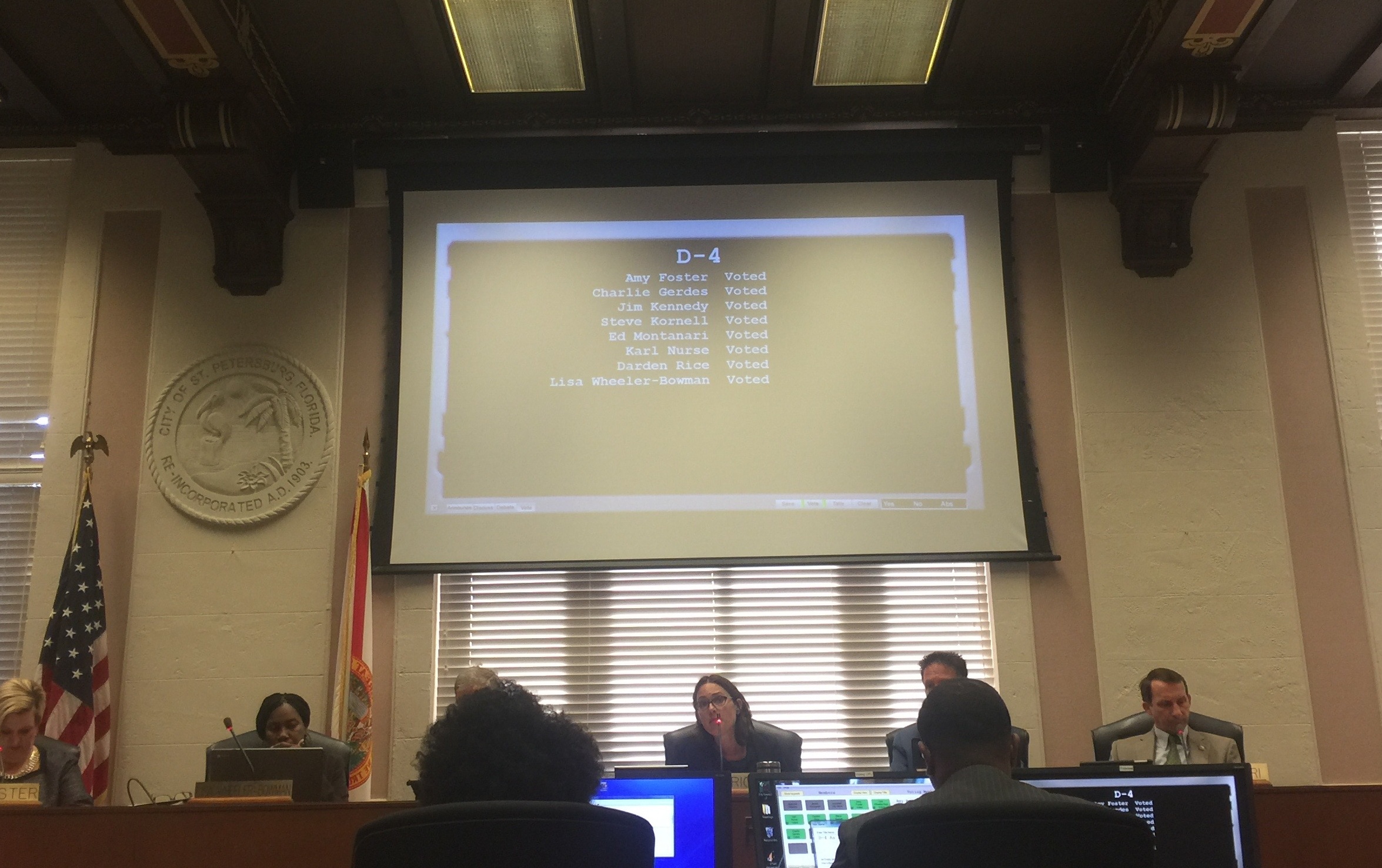#MLS2STPETE: Understanding the Al Lang Stadium Referendum
City Council meetings are admittedly never very exciting. Much of the discussions revolve around parcels, ad-valorem taxes, zoning questions, program awareness, and the occasional personal complaint about something the city is doing to anger one of its residents. Very rarely do you see a great deal of outside discussion, or even significant input from the public.
However, when it comes to stadiums and expansion teams, this is where the sausage is really made. After about 30 minutes of public discussion, the St. Petersburg City Council voted unanimously to go forward with language that set up a public vote, scheduled for May 2nd of this year, bringing the Tampa Bay Rowdies one step closer to joining MLS.
Prior to the council meeting, the language of the referendum was announced in the Council agenda as such:
“An Ordinance calling a referendum regarding an agreement, with a term not exceeding 25 years and subject to certain conditions, for Al Lang Field to be used for the primary purpose of providing a home field for the Tampa Bay Rowdies to compete in Major League Soccer; authorizing the City Council to approve such and agreement following approval of the referendum by a majority vote; providing the referendum ballot title and text; calling a Special Election for May 2, 2017, to hold the referendum; directing the City Clerk to provide notice of the Special Election; making findings; and providing an effective date.”
The referendum’s language came into question thanks to questions by councilmember Charlie Gerdes, who sought to strengthen language of the referendum from using the terms “subject to” to “under,” appending the language of “primary purpose” to include “but not sole,” and changing the word “field” to “facility.” While this sounds like procedural wrangling, the importance of the language on the referendum is important, because the St. Petersburg City Charter limits any new proposals to a maximum of 75 words. This led to an additional question about the publication of the language, which would have to be revised, despite that it had already been submitted to the local paper of record, the Tampa Bay Times. A brief recess ensued, and as city attorneys huddled with council members, the language was finalized, a staffer reached out to the Tampa Bay Times, and the finalized submitted language – which had not yet been approved by council – was sent to the paper. That change cost the city about $1000 in advertising space.
But… it didn’t.
What was not openly discussed was the cost of this referendum, should it go forward. Requiring a special election means that the city has to pay for the use of the Pinellas County Clerk of the Courts to administer, staff and tally all the votes – currently scheduled for May 2nd, 2017. This comes with a cost of $270,000, of which $254,000 would be due to the Clerk on March 3rd – or the day after public discussion. This required another round of discussion and voting, because the money would be required to be put into escrow. What should have kinked this issue is that money for this special election simply had not been appropriated for the fiscal year – submitted back in October of 2016.
But… it didn’t.
Because like the advertising costs, Bill Edwards has agreed to pay for all of it.

Former Mayor Rick Baker, now on staff as the president of the Edwards Group, was on hand at the meeting, and quickly sought to clear the way of any obstacles by agreeing to absorb the additional advertising costs due to the changes in language. While councilmen Gerdes and Kornell asked about the additional cost, Baker simply strode up to the podium, was recognized by the chair, and agreed to pick up the tab.
Not everyone on hand was as easily persuaded, however.
While the majority of business leaders, including the St. Pete Chamber of Commerce CEO Chris Steinacher, spoke in favor of the ordinance, some others bristled at the idea of expanding Al Lang, citing traffic, trash disposal, noise pollution, and parking inconveniences during game day. It is worth noting however, that Al Lang is currently the home of the Saturday Morning Market, which is reporting to attract about 10,000 visitors every weekend, and the current capacity of 8100, has yet to cause significant noise or other service issues, including traffic. In 2016, the City of St. Petersburg commissioned and received a finalized report on the Parking Demand Study, which cited that even at peak hours during weekends, the available parking for all of downtown did not exceed more than 50% usage.

On the matter of additional use, the question of whether or not Al Lang would become an outdoor concert destination was posed. The current lease agreement holds that Big 3 Entertainment is required to host at minimum, 10 non-soccer game related activities per year. Some examples of such have been post game concerts, as well as rugby matches, commercial shoots, chamber luncheons, and even an X-Games style event. Based upon the language of the ordinance, however, it is not only unlikely that city councilmembers would be averse to concerts and other events, but that they would actively seek to bring more use to Al Lang stadium on non-game days. The only question would be how that would impact the pitch, and how field maintenance staff would respond to such a challenge.
The Rowdies found a rather unlikely ally in Hal Freedman, who previously spearheaded efforts beginning in 2007 all the way into 2011 preventing the Tampa Bay Rays from expanding Al Lang, under his community group Protect Our Wallets and Waterfront (POWW). Citing a reasonable and low footprint, no pedestrian obstructions, and no additional filling in of the Bay in the proposed design, Freedman was surprisingly supportive of the effort.
So what’s next?
On Thursday, March 2nd, there will be a hearing on the referendum language, which may lead to finalization and submission. The time and format of that meeting is not yet determined, however it is likely to follow the same format as today’s occurring at 3pm, with an open forum. From there, the next big date will be Tuesday, May 2nd, when the actual referendum will be voted upon. Should that pass public approval by a simple majority, the City Council will then adopt the language into the charter (Section 1.02[d]) allowing the lease to change from a five (5) year agreement (expiring in 2020) to a twenty-five (25) year agreement. Additionally, the City Council and staff would have to draw up the new conditions for the agreement, which are currently non-existent. As the language sits right now, unless the Tampa Bay Rowdies are selected as a recipient of MLS expansion (no time frame is specified), the Al Lang lease will remain limited to only 5 years.
The average fan is not going to be inclined to sit for several hours on a Thursday afternoon to listen to the minute details of an ordinance to create a referendum, but this is how monumental movements of soccer expansion get done. Even fans of lower division soccer should pay attention when it comes to these types of meetings, ordinances and referendums. It’s by no means glamorous, and so far, no drums or smoke have been let off in the council chambers, but attendance at these meetings are as essential as showing up at the stadium on game days. Just not as glamorous.
Next Meeting:
Thursday March 2nd, @8:30AM – St. Petersburg City Hall (175 5th St N, St. Petersburg, FL 33701)

